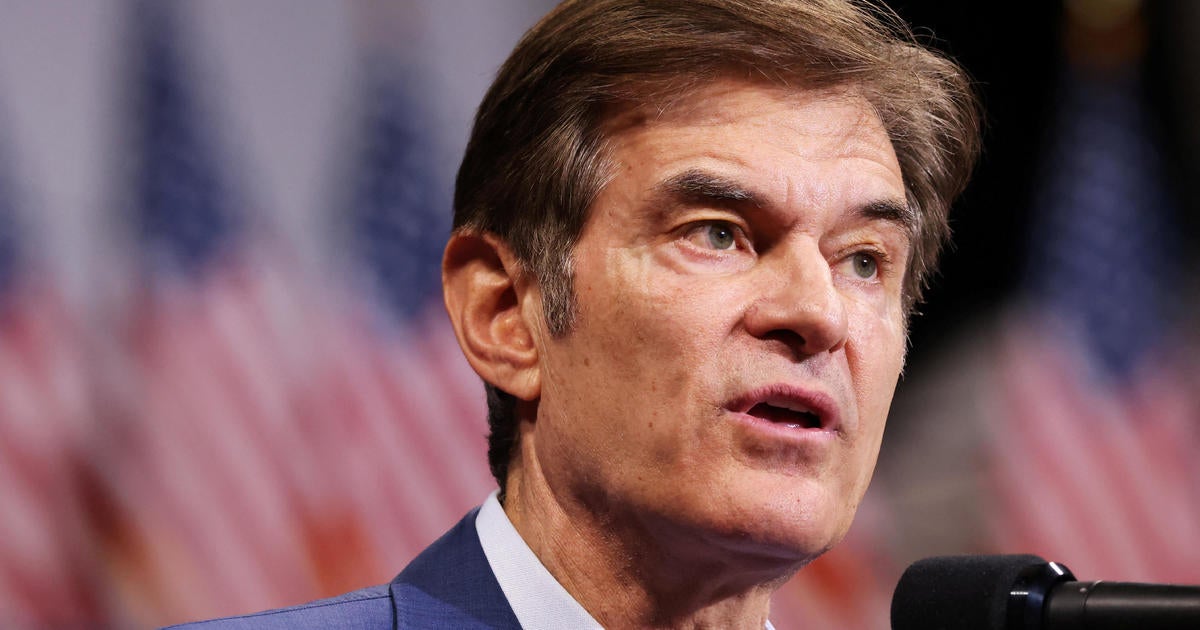Dr. Mehmet Oz, a renowned heart surgeon and former television host, is due to face a series of challenging questions from the Senate’s finance committee regarding his nomination by President Trump to lead the Centers for Medicare and Medicaid Services (CMS). The session is set to take place on Friday, with the GOP-led finance committee responsible for scheduling a vote on whether to send Oz’s nomination to the full Senate for approval. Given the current Republican majority, there is a high likelihood that Dr. Oz’s nomination will be approved.
Should he be confirmed, Dr. Oz will hold the prestigious position of administrator, overseeing the almost $1.5 trillion spent by the federal government on Medicare and Medicaid. These two health insurance programs, which provide coverage for seniors and economically disadvantaged Americans, account for more than a third of the federal budget.
Medicare, a program run directly by the federal government or contracted out to private insurers, currently covers around 65 million people. Medicaid, on the other hand, supports approximately 85 million individuals through programs that are primarily managed by state governments under the oversight of CMS.
Dr. Oz will face the significant task of either finalizing or abandoning major changes to Medicare and Medicaid that were sought by the Biden administration. One such proposal, made in November, involves expanding coverage to include drugs used for weight loss, such as Wegovy and Ozempic. This proposal has drawn attention due to its considerable cost.
In addition to fielding questions about potential changes to Medicare and Medicaid, Dr. Oz is also expected to address concerns about the substantial authority he would hold over private health insurance as the CMS administrator.
Earlier this week, CMS proposed several steps to reverse expansions to the insurance marketplace that had been introduced by the Biden administration. These changes include shortening the open enrollment period and excluding recipients of the Deferred Action for Childhood Arrivals (DACA) policy from coverage. Last year, Dr. Oz expressed his disapproval of the law responsible for these expansions, stating that it had “caused havoc on our health care system” and that he “wouldn’t have voted for it.”
Dr. Oz’s nomination to head the CMS marks the fourth time a health official selected by President Trump has been questioned by senators. This follows the unexpected cancellation of a hearing for Dr. David Weldon, whose nomination to lead the Centers for Disease Control and Prevention was withdrawn by the White House.
Despite some setbacks, the majority of senators on the Senate’s health committee have advanced other nominees selected by President Trump. These include Dr. Jay Bhattacharya, the president’s nominee to head the National Institutes of Health, and Dr. Marty Makary, the pick to head the Food and Drug Administration. Both of these nominations were advanced on Thursday.
If confirmed, Dr. Oz’s immediate superior will be Health and Human Services Secretary Robert F. Kennedy Jr., who was narrowly confirmed by the Senate a month ago.
In anticipation of his nomination hearing, Dr. Oz has held “great conversations” with key Republicans, according to social media posts made last month. Among those he has met with is Sen. Bill Cassidy of Louisiana, the Republican chair of the Senate’s health committee. As one of four medical doctors in the Senate, Sen. Cassidy’s support could prove influential in confirming Dr. Oz’s nomination.
The president’s choice to lead CMS has not been without controversy. Some Senate Democrats have criticized Dr. Oz’s nomination, citing his past endorsement of “alarming pseudoscience”, a record of anti-abortion statements, and potential conflicts of interest.
Dr. Oz has a distinguished career in the medical field, having served as a professor of cardiac surgery at Columbia University and as the host of “The Dr. Oz Show” until 2022. He stepped down from the show to run for a Senate seat in Pennsylvania, a race he ultimately lost to Democrat John Fetterman. During the race, abortion was a key issue for voters.
As part of an ethics agreement published last month, Dr. Oz pledged to resign from several companies, including nutritional supplement company iHerb and drugmaker Housey Pharma. He also vowed to divest from several healthcare companies, including insurance behemoth UnitedHealth Group.
Following his Senate race, Dr. Oz continued his role as iHerb’s global advisor, even promoting the company’s supplements on social media after his nomination.
Dr. Oz has also revisited his past work in recent years, sharing excerpts from his show on social media. One such clip, shared on September 4th, was from a sponsored interview about Medicare Advantage coverage. In 2020, Dr. Oz proposed that Medicare Advantage should be expanded to all Americans. He noted in the clip that enrollment in Medicare Advantage had grown 70% since he started his show. According to the latest federal data, just over half of seniors have opted for these plans instead of the “original Medicare” coverage.
“I want to nudge you. I don’t want to shove you. But think about this, because a 70% increase since I started the show means a lot to me,” Dr. Oz said in the clip.
While Dr. Oz’s nomination has stirred controversy and conversation, his confirmation could signal a significant shift in the direction of American healthcare. As the potential head of CMS, he would undoubtedly have a substantial impact on the future of Medicare and Medicaid, as well as private health insurance. As such, his nomination and potential confirmation will be closely watched by those within and outside the healthcare industry.









